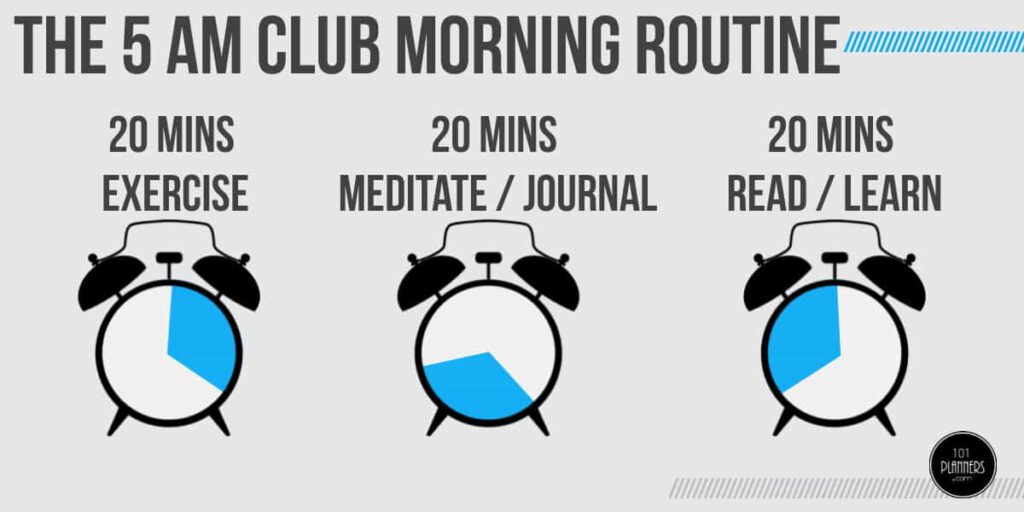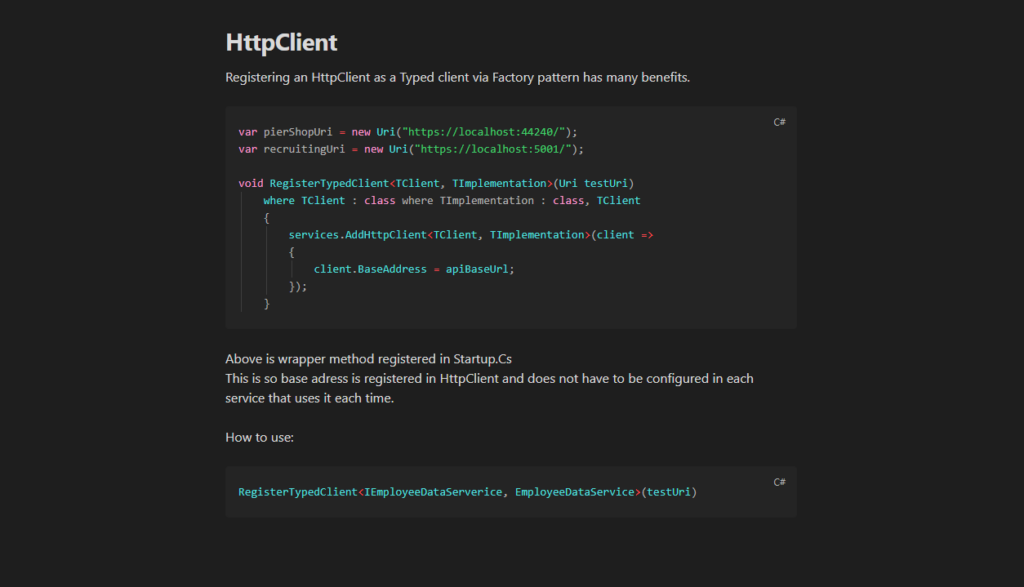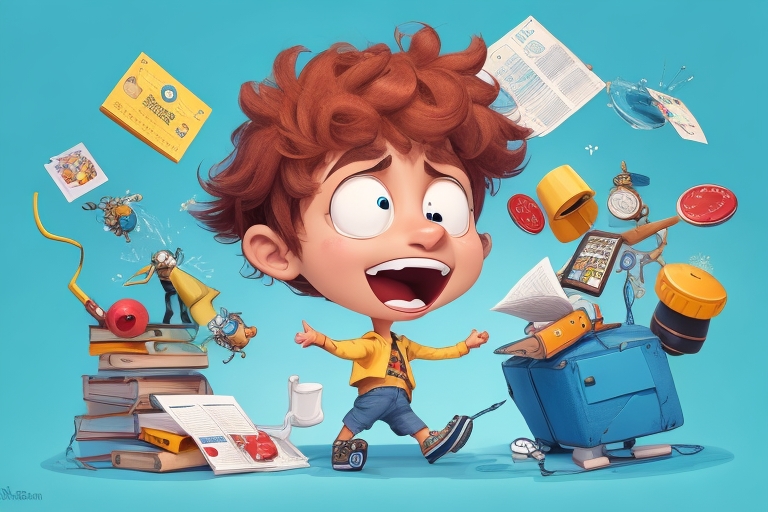The Impact of ADHD on Programming: Overcoming Forgetfulness and Enhancing Concentration

The impact of having ADHD while learning programming or beeing in this field should not be underastimated. ADHD and software development have a unique connection, neurodiverse people are drawn to the hands-on nature of coding and the flexibility it offers in organizing work habits. We are all about our habits 😉
Autonomy is key for us, and coding allows for working in bursts or marathons, any time of day, in any place. Attention to detail can be challenging, but with practice, finding and fixing mistakes becomes easier. Unfinished personal projects are a danger for ADHDers, but it’s important to find an exciting job where you can stick to and grow to improve your skill set and overall become a better developer. Now let’s dive into how ADHD impacts learning software development and how to overcome forgetfulness and enhance concentration.
The Unique Appeal of Programming for ADHDers
When it comes to finding the perfect career fit for people with ADHD, software development isn’t usually at the top of the list. But let me tell you, programming can actually be a nice fit for the way the ADHD brain functions. Trust me, I’m an expert in quirky logic.
Hands-On Learning: A Playground for Creativity
One of the reasons why programming is so appealing to ADHDers is because it’s a hands-on activity. You learn by actually doing things and experimenting. It’s like a playground for your creative mind. And let’s face it, ADHDers have creativity in abundance. So why not channel that energy into creating awesome applications?
Embracing Autonomy: Work Your Way
Another great aspect of programming for ADHDers is the autonomy it offers. You can organize your work habits in a way that suits your brain. Want to work in short bursts? Go for it. Prefer a long marathon session? That’s cool too. You can program at any time, any place, and in whatever manner fits with your brain. This sounds very unrealistic, but in my experience, most companies nowadays offer a lot of flexibility, as long as you get the job done (and attend the daily scrum meetings)!
Attention to Detail: A Double-Edged Sword
But of course, there’s a catch. Attention to detail is crucial in programming, and that’s where ADHDers sometimes stumble. One little mistake can introduce nasty bugs. Typos, logic oversights, and forgetting about those pesky edge cases can be a real headache. This happend to me more than i’d like to admit. But fear not, you’ll become a pro at hunting down your own mistakes in no time. It’s like playing a never-ending game of hide-and-seek with your code. Also, with experience you will learn what your pitfalls are, and become increasingly better at preventing dumb mistakes.
Oh, and finishing projects can be a challenge for us ADHDers too. We tend to start but not finish things. It’s like a curse we can’t shake off. So, if you are working in software development, and are someone that likes to work on personal project, start by defining the scope as small as possible. Getting stuck on one project for month or even years can be a pain, just the thought of not having finished something while working on a new idea is unpleasent. Trust me, I’ve been there.
But hey, don’t let these challenges discourage you. With a little bit of focus, planning and determination, ADHDers can excel in the world of programming. So go ahead, embrace your quirks, and let your ADHD brain create some amazing code. You’ve got this!
Autonomy and Flexibility in Programming
When it comes to programming, ADHDers can find solace in the freedom it offers. Unlike other activities that demand rigid schedules and strict adherence, coding allows you to create your work habits. Need to work in short bursts or longer sessions? No problem, go ahead. Want to code at odd hours or in unconventional places? Your call. The best part? You can even choose between collaborative or solo projects. Programming gives you the autonomy to work however your ADHD brain functions best. So embrace the flexibility and code away!
I have had periods where my “dolphin” chronotype was very night dominant, and I was more productive in the late afternoon and evening. My boss didn’t mind, and I was really getting a lot of tasks done then I would normally in the morning. More information about chrono types here
Attention to Detail Challenges
Tiny Mistakes, Big Consequences: The Reality of Coding with ADHD
When it comes to programming, attention to detail is crucial. One tiny mistake can completely undermine hours of work. It could be as simple as not thinking about a common alternative flow to implement or not validating user input, but the consequences can be massive. And if you have ADHD, chances are you’re no stranger to making inattentive mistakes.
So get ready for some quality time spent going back through your code to hunt down those sneaky errors. It’s a process that can be quite time-consuming, but hey, at least it gives you the chance to become a master at finding your own mistakes, right?
The Struggle of Inattention: Navigating Through Bugs and Errors
This extra time it takes to look for inattentive mistakes we often do not have. My ADHD’er like myself struggle a lot of with beeing distracted a lot, which already increases the time needed to finish tasks. Now we even need to spend more time to look for bugs and mistakes? The team is not going to like this. Sadly, that’s the reality of our work. How to get better at this we will discuss in another post.
But wait, there’s more! People with ADHD are infamous for starting projects but not finishing them. And this can be a serious problem when it comes to programming. Because let’s face it, in the coding world, leaving a project half-done isn’t exactly viewed as a shining achievement. It’s more like wearing a big neon sign that says “I can’t commit”.
So if you’re going into software development with a severe case of ADHD, it might be wise to spend some time thinking about the personal project you want to work on, and define a minimal viable product, which can be completed in a relative short period. That way, you can avoid getting stuck on Project C for long periods of time, and find yourself in a tough situation.
But hey, no need to fret! There are ways to overcome these challenges. So stick around because we’re about to dive into how to enhance your concentration and say goodbye to forgetfulness. But first, let’s take a moment to appreciate the quirks of being a programmer with ADHD. After all, who doesn’t love an adventure packed with endless debugging and unfinished projects? It’s like a roller coaster ride that never ends! Buckle up, my fellow ADHD coders, because we’re about to conquer the programming world, one line of code at a time!
The Danger of Unfinished Projects
The Peril of Incomplete Codes: A Common ADHD Dilemma
ADHD and unfinished projects seem to go hand in hand. People with ADHD have a knack for starting new projects with great enthusiasm, but often find themselves struggling to finish them. When it comes to writing applications or api’s, this danger becomes all the more prominent. The unique appeal of programming for ADHDers, with its hands-on nature and flexibility, can quickly turn into a breeding ground for unfinished code.
You see, programming requires attention to detail. Small mistakes are easy made, and if you have ADHD, chances are you will regularly make these inattentive mistakes. So, get ready for the joy of going back through your code debugging those errors. It’s like finding a needle in a haystack, but hey, who doesn’t love a good challenge?
Overcoming Impulsivity: Strategies for Completion
Furthermore, the impulsivity that comes with ADHD can lead programmers to jump from project to project without completing any of them. It’s like a never-ending cycle—start, get distracted, start again, get distracted again. Rinse and repeat. While it may sound exciting to have multiple projects on the go, it can quickly become overwhelming and leave a trail of unfinished code in your wake.
But fear not, fellow ADHD programmer! There are ways to overcome this danger. Building a routine, setting clear goals, and finding accountability partners can provide the structure and support needed to see projects through to the end. I want to stress the importance of setting clear goals and having a stable routine. These two things really are the corner stones for a systematic way to finish your projects and stay on track.
Personally I have been using the 5AM Club routine with great success. The main idea is that we get up at 5AM, to spend the most productive hours of our day on the most important tasks. After waking up I exercise, do journalling, followed by a short learning session. Then I spend 90 minutes on personal projects, and after that my normal job starts. After work I don’t feel like I still need to do things, because I have already done them in the morning, and can just relax and enjoy the evening.

What might also help, when wanting to start a new project is evaluate your current projects and prioritise them in a way to get an idea which one would give you the most value when finished. Really be honest with yourself, does the latest shiny idea really provide value, or is it more an impulsive idea?
And remember, the satisfaction of completing a project is worth the struggle. So, embrace your ADHD quirks, harness your creativity, and conquer those unfinished projects like the coding champion you are!
Overcoming Forgetfulness and Enhancing Concentration
Tackling Forgetfulness: Tools and Techniques
Ah, the dreaded forgetfulness and lack of concentration that come hand in hand with ADHD. These are things I have struggled the most with in my career. Thankfully, there are ways to overcome these challenges and enhance your focus in the world of software development.
Firstly, let’s address the issue of forgetfulness. It’s no secret that those of us with ADHD have a knack for misplacing items and forgetting important details. However, when it comes to programming, we can use our forgetfulness to our advantage. How, you ask? Well, the beauty of coding is that everything is written down. You can work with tools like Notion or Obsidian to help you remember concepts or certain syntax. These tools are often described as “second brains” and are generally speaking just a bunch of mark down files, but easy to use and access. You can of course enhance the experience by working with plugins, etc. I have been using Obsidian for the last 16 month and I have been writing down everything I know I will ever use again, but know will definitely not remember.

Documenting your code is also really helpful. Most companies make this obligatory, but if your team does not, be the one to introduce this idea (also helps a lot for onboarding new collegues). Plus, there’s always the trusty ‘Ctrl+Shift+F’ function to quickly search for specific keywords in your IDE. Who needs a perfect memory when you have a computer to remember things for you? Nowadays, AI tools like chatGPT can be used in a similar fashion. I will dedicated multiple articles how to integrate these tools in your work flow to increase productivity and learning speed.
Harnessing Hyperfocus: A Natural Coding Booster
Now, let’s talk about enhancing concentration. We all know how difficult it can be for us ADHDers to stay focused on one task for an extended period. But guess what? Programming is the perfect solution! It’s like a puzzle that requires your full attention and problem-solving skills.
Once you start diving into the world of coding, you enter a state of flow where time seems to fly by. It’s like a hyperfocus on steroids (metaphorically speaking, of course). So, embrace your ability to hyperfocus and let it fuel your programming endeavors. The only problem are distractions, so remove your phone, close down social media, do whatever it takes. This can make or break your productivity!

Of course, it’s important to acknowledge that ADHD can pose some challenges in the realm of software development. Attention to detail is crucial when it comes to coding, and one small mistake can cause a cascade of errors. But fear not, my fellow ADHDers, for our resilient brains are perfectly capable of developing the skill of hunting down our own mistakes. It may take some time and a lot of trial and error, but with practice, we can become the ultimate code detectives. Your career is like a scrum sprint, an iterative process. The more you work as a programmer, the better you get to know yourself and lean these skills.
Overcoming ADHD Challenges: From Unfinished Projects to Coding Stardom
Finally, let’s address the ever-disappointing issue of unfinished projects. We ADHDers tend to start but not finish projects, and it can be frustrating to have a long list of half-completed side projects. However, the key is to find a balance and learn to manage our time effectively. Set realistic goals, plan and define the scope of your project, break down projects into smaller tasks, and reward yourself when you complete each milestone. By implementing these strategies, you can conquer the curse of unfinished projects and become a coding superstar.
So, my ADHD compadres, while forgetfulness and lack of concentration may sometimes feel like the ultimate foes in our software development journey, they can be transformed into allies. Embrace your forgetfulness by utilizing documentation and the power of external tools like Obsidian. Embrace your hyperfocus and let it propel you through hours of coding marathons. And most importantly, embrace your ability to overcome challenges and create brilliant pieces of code. Let’s show the world that ADHD and software development are a match made in tech heaven!
Conclusion
The Unique Appeal of Programming for ADHDers
Programming offers the perfect playground for those with ADHD. It’s hands-on, allowing them to learn by doing and experimenting. Plus, it offers autonomy, a precious commodity for ADHDers who thrive when given flexibility to work in their way. Whether it’s writing code in short bursts or longer coding sessions, programming allows them to follow their process. And the best part? They can program anytime, anywhere, and in any manner that fits with their uniquely wired brains.
Attention to Detail Challenges
Programming, like any other craft, requires attention to detail. And for ADHDers, this can be a real challenge. One small mistake can derail hundreds of lines of code, leading to frustration and time-consuming bug hunting. Typos, incorrect variable names, overlooked logic errors, or forgetting to account for unusual inputs can result in a programmer’s worst nightmare. But with practice and developing the skill to detect their own mistakes, ADHDers can learn to navigate the treacherous waters of attention to detail.
The Danger of Unfinished Projects
ADHDers have a notorious reputation for starting but never finishing projects. While programming offers them a world of creativity and focus, it also presents the risk of endless unfinished endeavors. In a world where ADHD is often viewed as an excuse rather than an acceptable problem, individuals with severe ADHD must be realistic about taking on new projects. Be realistic, do you really need to start working on this project? If yes, beak the project up in smaller tasks and set milestones.
Overcoming Forgetfulness and Enhancing Concentration
ADHDers often struggle with forgetfulness, losing track of time, and missing out on important moments or precious family time. They can spend countless hours coding, their brains fully engaged in the process, but it comes at a cost. Sleep becomes a luxury, days blend into one another, and calendars become a mere decoration. But it’s their passion, their drive, and their ability to focus during those intense coding sessions that sets them apart. Despite the challenges, they find ways to work with their ADHD, harnessing their energy to accomplish remarkable things in the world of programming.
FAQs – The Impact of ADHD on Programming: Overcoming Forgetfulness and Enhancing Concentration
What makes programming an appealing career choice for individuals with ADHD?
Programming is hands-on and flexible, allowing individuals with ADHD to work in bursts or marathons, anytime and anywhere. It caters to their preference for autonomy and offers a creative outlet for their abundant energy and ideas.
What challenges do individuals with ADHD face in learning software development?
Attention to detail can be challenging, leading to mistakes and bugs in the code. Additionally, finishing personal projects can be difficult for individuals with ADHD, as they tend to start but not finish tasks.
How can individuals with ADHD overcome challenges in attention to detail while programming?
With practice, individuals with ADHD can become skilled at finding and fixing their own mistakes in the code. They can learn from experience and gradually improve their ability to prevent errors by paying close attention to detail.
How does ADHD affect concentration in programming?
ADHD can make it challenging to stay focused on one task for an extended period. However, programming can actually enhance concentration for individuals with ADHD as it requires problem-solving skills and the ability to enter a state of hyperfocus.
How can individuals with ADHD enhance their concentration while programming?
To enhance concentration, individuals with ADHD can remove distractions, such as phones and social media, during coding sessions. Embracing hyperfocus and finding a quiet and dedicated environment can also help improve concentration.
Do individuals with ADHD struggle with unfinished projects in programming?
Yes, individuals with ADHD often struggle with completing projects. However, by setting clear goals, planning project scopes, breaking down tasks, and finding accountability partners, they can overcome this challenge and finish their projects successfully.
How can individuals with ADHD overcome forgetfulness while programming?
Documentation tools like Notion or Obsidian can be used to jot down important concepts, syntax, and other details. Taking the time to document code and utilizing the search function in the IDE can also help individuals with ADHD compensate for their forgetfulness.
What strategies can be helpful for individuals with ADHD to complete projects in programming?
A: Building a routine, setting clear goals, defining project scopes, breaking down tasks into smaller milestones, and rewarding oneself upon completion can all help individuals with ADHD successfully finish their projects.
Are there any specific techniques or tools that can help individuals with ADHD in programming?
Yes, tools like documentation software (Notion, Obsidian), AI tools (ChatGPT), and utilizing version control systems (e.g., Git) can all assist individuals with ADHD in improving their productivity and learning speed in programming.
Can individuals with ADHD succeed in the field of programming despite their challenges?
Absolutely! With focus, planning, determination, and a bit of creativity, individuals with ADHD can excel in programming. Their unique approach and problem-solving skills can make them valuable contributors in the world of software development.